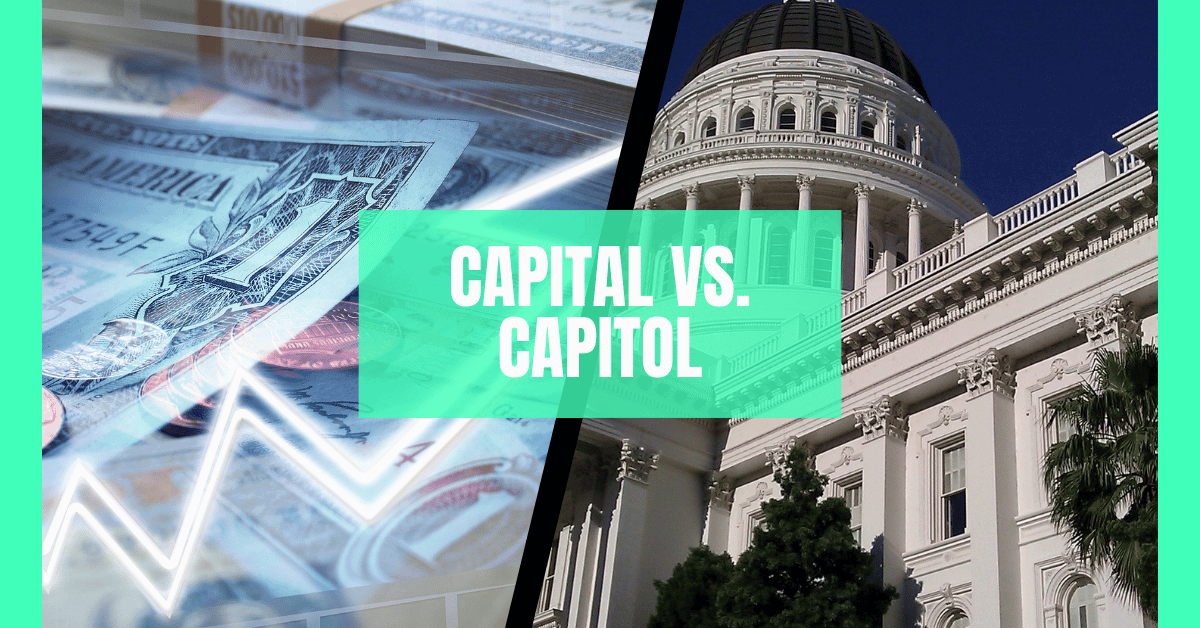Capital vs. Capitol: Understanding the Key Differences

Capital vs. Capitol: Understanding the Key Differences
Capital vs. Capitol: Understanding the Difference
English is full of tricky word pairs, and “capital” vs. “capitol” is one of the most commonly confused. While they may sound identical, these words have distinct meanings and uses. Misusing them can lead to embarrassing mistakes, especially in formal writing. Let’s break down the differences, and by the end of this post, you’ll have a crystal-clear understanding of when to use “capital” and when to use “capitol.”
Source: Learn English Coach YouTube Channel
What Does “Capital” Mean?
The word “capital” is a bit of a chameleon. Depending on the context, it can mean several things, and this versatility is one reason it’s frequently misused. Let’s explore its primary meanings.
1. Capital as a City
In political geography, a capital is the city where a country’s government is located. Think Washington, D.C., the capital of the United States, or London, the capital of the United Kingdom. This usage is common and easy to remember: the capital is the political heart of a nation or region.
Example:
Paris is the capital of France, known for its art, culture, and political importance.
2. Capital as Wealth or Assets
In business and finance, capital refers to money or assets that are used to generate income. You might hear investors talk about “raising capital” for a new venture or “capital investments.”
Example:
The startup secured enough capital to launch its new product line next year.
3. Capital as an Adjective
When used as an adjective, capital can describe something that’s important or excellent. Though this usage is less common today, you might come across it in older texts or more formal settings.
Example:
That’s a capital idea! Let’s implement it immediately.
What Does “Capitol” Mean?
Unlike “capital,” the word capitol has a much narrower definition. It always refers to a specific type of building—the one where a government’s legislative body meets. In the United States, the word “Capitol” with a capital “C” refers specifically to the building in Washington, D.C., where the U.S. Congress convenes. It’s a proper noun in this context.
1. Capitol as a Building
A capitol is a government building where lawmakers gather to debate and pass legislation. While the most famous example is the United States Capitol, many U.S. states also have their own capitol buildings.
Example:
The U.S. Capitol in Washington, D.C., is a symbol of democracy and governance.
Quick Trick to Remember the Difference
One easy way to remember the difference between “capital” and “capitol” is to think of the “o” in capitol as representing a dome. Most capitol buildings, like the U.S. Capitol, have dome-shaped roofs, making this a helpful mnemonic.
Meanwhile, “capital” can apply to a broad range of meanings—just remember that it’s often linked to cities, wealth, or something important.
Common Mistakes and How to Avoid Them
Now that we’ve covered the basic definitions, let’s look at some common mistakes people make with these words.
Mistake #1: Confusing the Political City with the Government Building
Many people mix up “capital” and “capitol” when talking about a government’s seat of power. The capital refers to the city itself, whereas the capitol is just the legislative building.
Incorrect:
Washington, D.C., is the capitol of the United States.
Correct:
Washington, D.C., is the capital of the United States, where the U.S. Capitol is located.
Mistake #2: Using “Capitol” to Refer to Financial Assets
Remember, capitol never refers to money or financial resources. That’s strictly the domain of capital in its business sense.
Incorrect:
The company raised enough capitol to fund the project.
Correct:
The company raised enough capital to fund the project.
Mistake #3: Misspelling in Formal Writing
A subtle but critical error is spelling capital when you mean capitol, especially in formal documents, news articles, or academic writing.
Incorrect:
The lawmakers met at the state capital.
Correct:
The lawmakers met at the state capitol.
Wrapping It Up
The confusion between capital and capitol is understandable, but with these distinctions in mind, you should feel more confident in your usage. The next time you write about the heart of a nation, its government buildings, or financial matters, you’ll know exactly which word to choose.
If you’re talking about a city or money, go with capital.
If you’re referring to a legislative building, stick with capitol.
Mastering these slight differences can significantly impact your writing, helping you avoid common mistakes and communicate more clearly. Whether you’re writing about government, geography, or business, you’ll now have the tools to use “capital” and “capitol” with confidence.
FREE Quiz
Take our free quiz to test your knowledge on Capital vs. Capitol. 👉 Click Here to Start the Quiz.






